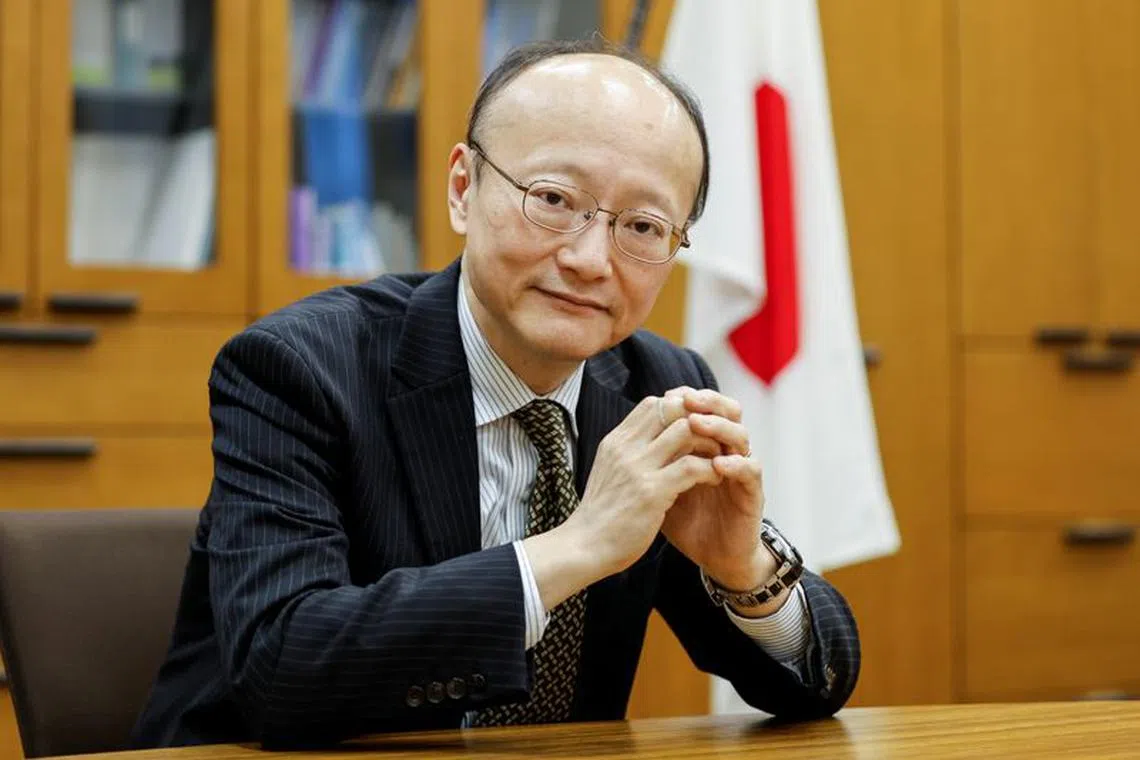Asean+3 agree on new financing facility to fend off crisis
Sign up now: Get insights on Asia's fast-moving developments

Japan's Vice-Finance Minister for International Affairs Masato Kanda said the new lending facility is aimed at responding to emergencies in the region.
PHOTO: REUTERS
TOKYO – Deputies of the Asean+3 group of nations agreed on Dec 7 to set up a new regional lending facility to respond to emergencies in the region, amid rising uncertainty over a global economic slowdown and elevated US interest rates.
The Asean+3 grouping tags on Japan, China and South Korea to the Association of South-east Asian Nations.
The establishment of the new scheme, dubbed the Rapid Financing Facility, and its specific content will be formally confirmed at the ministerial gatherings scheduled for next spring and summer, Japanese top financial diplomat Masato Kanda said after the group’s two-day meeting in the city of Kanazawa, north-west of Tokyo.
The new facility is meant to complement the existing webs of multilateral currency swaps known as the Chiang Mai Initiative Multilateralisation (CMIM), which can be used during times of crisis.
It will be placed under the umbrella of CMIM, the deputies said in a joint statement.
“CMIM was created by all of us for the sake of financial stability,” Mr Kanda, Japan’s Vice-Finance Minister for International Affairs, told reporters. “To our regret, it was never mobilised even amid Covid-19.”
“You never know when natural disasters or pandemics may occur. Member economies are craving... a facility that would meet the demand for balance of payments in such a situation.”
Japan is keen to realise a facility that enhances the use of existing currency swap lines, which should be more accessible, allowing members to tap funds in emergencies.
The Asean+3 group created the currency swap lines in 2000, following the Asian financial crisis of the late 1990s, and revamped them into a multilateral network in 2010 to help one another forestall or combat sharp capital outflows.
While Asian policymakers stress that their countries have sufficient foreign reserves and buffers to fend off another crisis, they also see scope for improvements to arrangements. REUTERS


